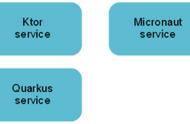一、 一般将来时的定义:
(1)一般将来时表示将来某一时刻的动作或状态,或将来某一段时间内经常的动作或状态。 常常和表示将来的时间状语连用。如:tomorrow(明天), next week(下周 );in the future(将来)等。
eg: I will arrive tomorrow.我明天到。
(2).在一般将来时的句子中,有时有表示将来时间的状语,有时没有时间状语,这时要从意思上判断是否指未来的动作或情况。
eg:We’ll only stay for two weeks. 我们只待两星期。
(3)在以第一人称I或we作主语的问句中,一般使用助动词shall,这时或是征求对方的意见,或是询问一个情况。
eg:Shall we have any classes tomorrow? 明天我们有课吗?
二、一般将来时的构成(1). 主语 will / shall 动词原形 其它。
eg:I will / shall go to visit him next week.
下周我将去拜访他。
(2). 主语 be going to 动词原形 其它。
eg:We are going to put up a building here.
我们打算在这里盖一座楼。
There is going to be a football match this afternoon.
今天下午将有一场足球赛。














